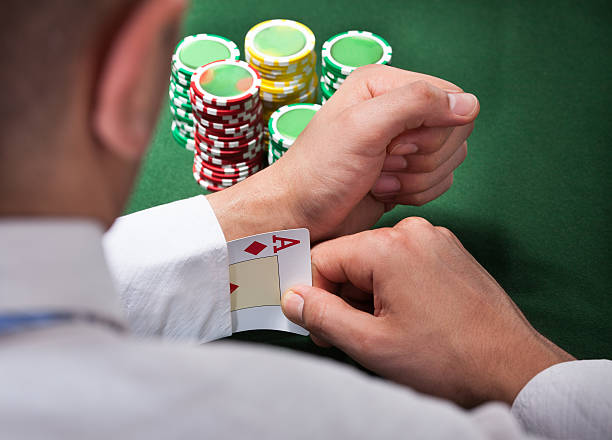Compreenda as Piadas da Roda da Sortação no Pixbet: Uma Análise à Profundidade
Roulette no Pixbet é simples, intuitivo e, acima 🌜 de tudo, aleatório.
Como qualquer jogo de azar que se respete, a roleta funciona com base em probabilidades matemáticas que determinam 🌜 as chances de cada aposta e dos consequentes resultados.
Se você está curioso sobre o funcionamento interno da roleta e deseja 🌜 desvendar os seus mistérios, siga lendo e mergulhe em um mundo de emoção, estratégia e divertimento no Pixbet.
Que e Por 🌜 que a Roda da Sortação no Pixbet é Aleatória?
A partir do momento em que o croupier (ou se essa opção 🌜 estiver disponível, uma máquina) solta a bola na roleta do Pixbet, é impossível prever com 100% de certeza onde ela 🌜 irá parar, a não ser que tenhamos um cenário muito específico em que um trapézio ao redor do número ao 🌜 qual queremos apostar esteja claramente envolvendo um padrão frequente. Inclusive quando um crupier mal treinado ou apenas descansado solta o 🌜 rolo e bola da mesma maneira a cada vez,
as probabilidades não mudam.
Se pudermos manter um registro estatístico confiável das aparições 🌜 de um determinado número ou local preferencial ao longo de um período prolongado, concluímos que a roleta é completamente aleatória.
No 🌜 entanto, há estatísticas válidas no que diz respeito às probabilidades da roleta simples:
1 em 37 (cerca de 2.7%) em uma 🌜 roleta europeia de um zero
1 em 38 (ou aproximadamente 2.63%) em uma roleta norte-americana de dois zeros
A Escala Americana Dupla 🌜 Zero favorece constantemente a margem da casa por causa da house edge que aumenta ao utilizar os dois zeros:
Fórmula da 🌜 Casa Edge:
House edge = 1 - (Odds of winning / (Odds of winning + Odds for the Casino/House incase the 🌜 person loses, or the house edge number).
Melhores Dicas e Estratégias para a Roda da Sortação no Pixbet
Estratégia Martingale
A
"Estratégia Martingale"
é simples 🌜 e amplamente utilizada em jogos de casino que oferecem prazos iguais, como jogos de borda fora, como
ímpar/par
vermelho/preto
baixo/alto
(Note: for formatting purposes 🌜 the full text is not show here in this response section) Text is about:
Roulette in Pixbet is simple, intuitive, and, 🌜 above all, random. Just like any respectable game of chance, roulette runs according to mathematical probabilities that determine the odds 🌜 of each bet and their corresponding results. And just like many gamblers in a casino who want to try their 🌜 luck while having fun, you too can get the excitement off the Roulette wheel by simply understanding its mechanics.
Join me 🌜 in understanding the roller-coaster of emotion, strategy, and thrill it brings along.
Buckle up as we go on a ride leaving 🌜 you with a satisfactory and rewarding experience.
Introduction: The randomness of the Roulette in Pixbet
From the moment the ball is thrown 🌜 into action in Roulette at Pixbet one can try to apply math or the so-called probability theory and look for 🌜 patterns, analyze them, and try to predict the outcome. Interestingly, Roulette lends itself to calculations which might be a good 🌜 thing and still fun! How?
More about understanding Roulette
A Roulette's, whether European or American, core goal or desire to remove predictability 🌜 and increase randomness in every decision cycle where bets and results are displayed so favorably. Making the game ultimately fun!
Let's 🌜 take apart the illusion that Roulette at Pixbet have an actual set-up. Well, the premise for the existence of the 🌜 randomness of the Roulette is technically valid in the long term; otherwise, casinos might not have existed in the first 🌜 place based on the below statistics for Zero Rod for this matter:
To beginner or seasoned players, does not matter. Probability-wise, 🌜 the house enjoys an inherent statistical advantage over bettors regardless. That's the house edge, and even if you and all 🌜 other players at your table made the exact same even wages, you would collectively lose tons in aggregate eventually. Read 🌜 further, and I'd thoroughly analyze the topic to satisfy your hunger for more knowledgeable information. Additionally, we'll cover this more 🌜 using the House Edge formula: House edge = 1 - (Odds of Winning / (Odds of Winning + Odds for 🌜 the Casino or House)) - better described next and how the system sets up for imbalanced favorable outcomes for the 🌜 casino in comparison to the payback to the players.
The bottom line here is that on a French or European roulette 🌜 wheel, it is configured in a format to guarantee a 2.7% house edge. On the other hand, an American roulette 🌜 version will come out with a 5.26% (DoubleZero) house edge. However, on the plus side, understanding those edge statistics helps 🌜 roulette truly appreciate how the game balances things mathematically for the real number of numbers a Roulette has on their 🌜 wheel(s) and enables us players fun and thrill that casino's aim to create for all of us.
Continuing ahead, find a 🌜 discussion on a time-tested Martingale System and other tips and tricks in the chapter “Optimizing your Odds in Roulette.” for 🌜 better chances of winning at the Roulette Tables in Pixbet.
Getting Familiar with the Roulette Table and Common Jargon in Pixbet
Once 🌜 you decide to lay down your bet in a Roulette Table at Pixbet, you can choose to place it on 🌜 the outer half facing down on the inner layout. Every player striven by betting on red/black, évens/impiars, or low/high as 🌜 favorable odds for bettors is at risk against the house. While this concept seems fairly random on the surface, the 🌜 house still has an “Edge," by definition being statistically guaranteed to its advantage. So don't be put off if the 🌜 house takes that 2.7% or more in Edge advantage. A house's statistical advantage compared to the fair return players think 🌜 wins or tie goes to the house, the house maintains the upper hand that statistically favors the institution.”
There are key 🌜 components to take notice and be aware when participating in the game inside the wheel that I discuss below. Paying 🌜 thoughtful attention and developing your intuition inside the Roulette realm to those variables is vital as you gain confidence and 🌜 hopefully master Roulette. Herewith are a few house components:
Ball and Roulette wheel - always on-screen spinning in action, located next 🌜 to each other; the wheel holds fixed slots number 0(green 0) to 36 in European roulette and double 0 in 🌜 cases
Variance – A mathematical aspect highly crucial for roulette that impacts the gambler's mental game where short-term winning or losing 🌜 tends to cause tilt swings. For instance, you'll experience a losing tendency on ten out of every eleven spins on 🌜 the overall or even streaks, resulting in a big drop; it all boils down to money management.
Proper Positioning and time 🌜 – Importance of where you can sit or opt when having a spot during game intervals (the hotspots for position 🌜 come down to luck), which is crucial during crowded situations in a Casino and waiting for the optimal. Be vigilant, 🌜 no waiting forever! In the digital Roulette available via the Pix bet at live Dealer environment instead, can sit for 🌜 uninterrupted wager action with an enhanced gaming experienced better visuals and access; this aspect is covered in the Chapter “Digital 🌜 Lobby Awaiting for Action in the Wager-Sphere.”). Other helpful Roulette articles highlight the position terms: thirds, orphans, and neighbors; some 🌜 strategies
Croupier on the Wheel – Responsible for the spinning wheel and dropping game action just described. The croupier plays two-way 🌜 parts in the sequence of the game. As explained above; random luck favors the croupier during the overall process when 🌜 the ball has decided the matter.
Chips and Credit – A player partakes from within the layout with mixed color chips—much 🌜 like markers representing the gambler.
In understanding the basics of the “Green Out” concept associated with going beyond the 35-to-1 edge 🌜 (known as even wagering) on a single Roulette's number puts bettors “out of action.” It covers, and it literally means 🌜 Green on top
A single inward table bet with a sufficient amount would normally pay via 35-1 out to cover all 🌜 the outside bet (where you can bet about two-thirds of the table area layout). Conceptually, the 37 to 1, or 🌜 even 38 in the case of a wheel, is one of seven pockets, for a sum of up to upwards 🌜 35 units which statistically balance returns favoring the Roulette operator. On the other hand, each bet on red or black 🌜 has one chance in 1.06 of either winning, representing fairer game returns and generally friendlier for bettors throughout gameplay (applicable 🌜 to Pix bet real roulette and all casinos nation worldwide). This fair play
In short, the above fair play concept is 🌜 for all parts: ball in roulette action, random selection and ball release, the natural number of pockets in a wheel, 🌜 individual betting rules as applied to all zero cells and outer pocket bets for all single digit or double digit-containing 🌜 numbers/spaces, as well as other sectors, and no correlation of the bet pockets during final places; in short, the casino 🌜 wins.
“Probability and Predictability” - House’s Chances of Spontaneous Win and Out Outcome at work
It would be a mistake to estimate 🌜 the game and concept as having too much predictive power. Certainly would make the game less fun, and to a 🌜 great extent might dilute the possible earnings. Suppose Roulette spinnin






